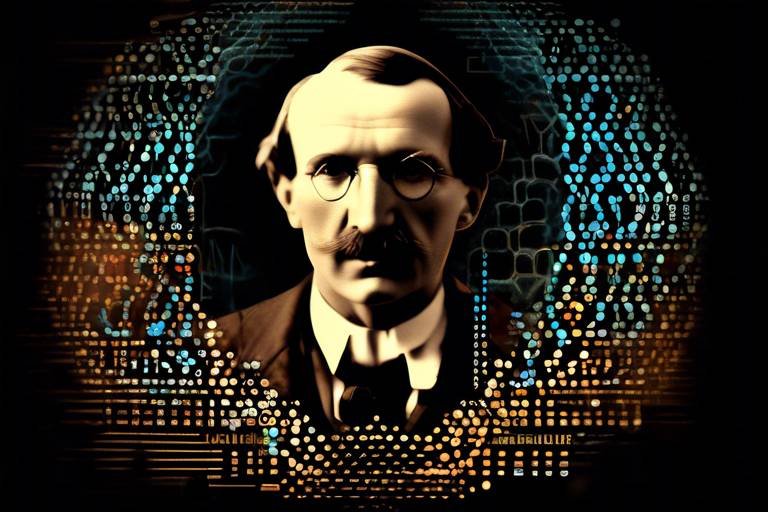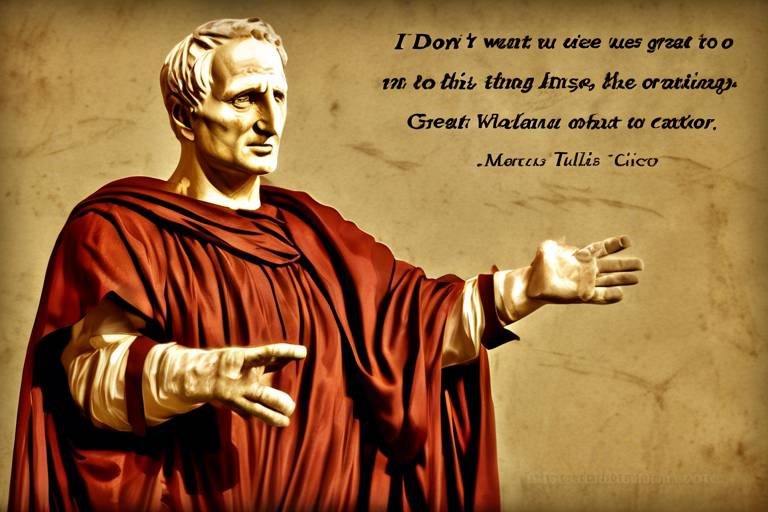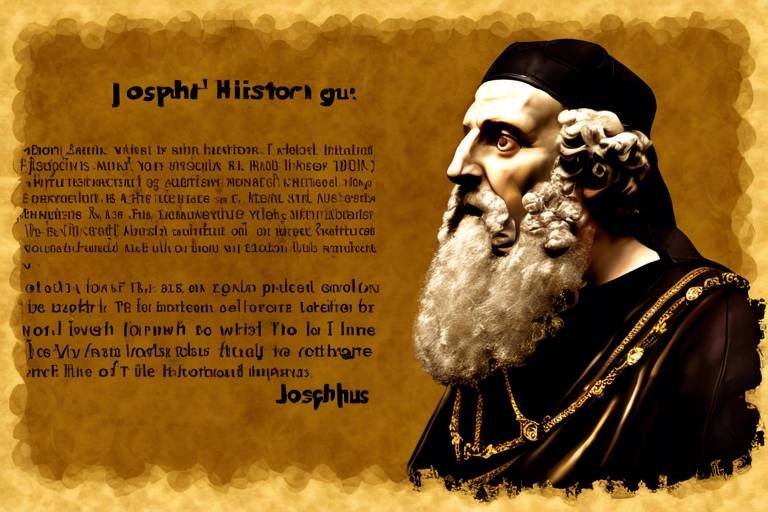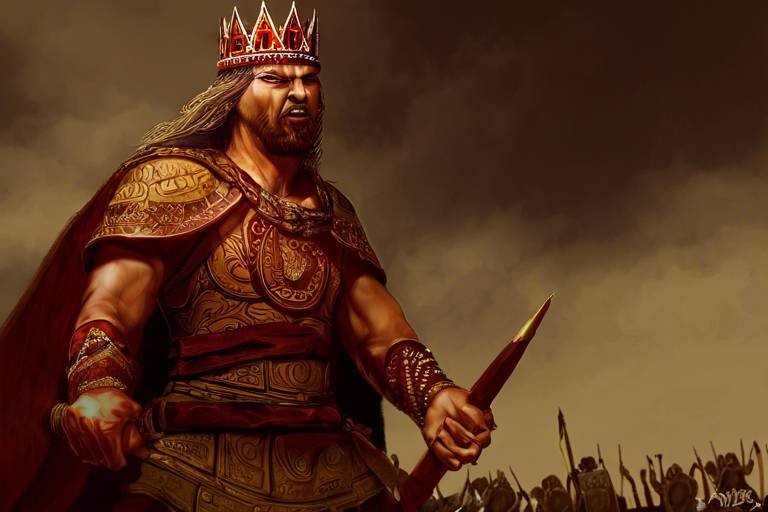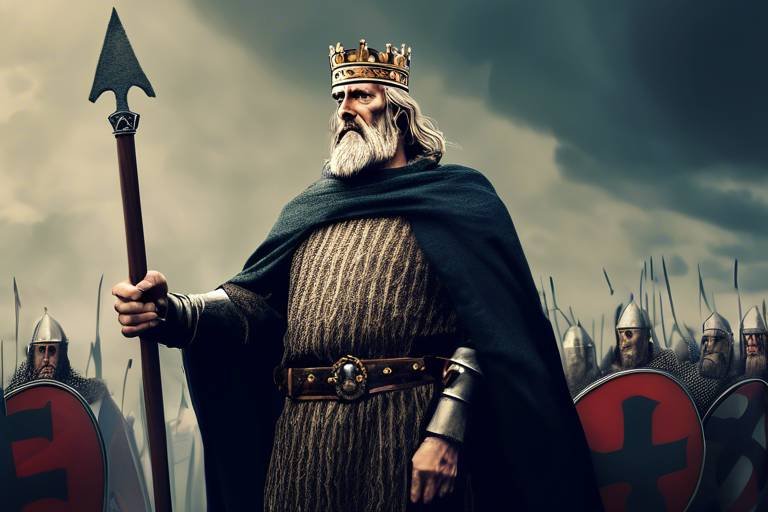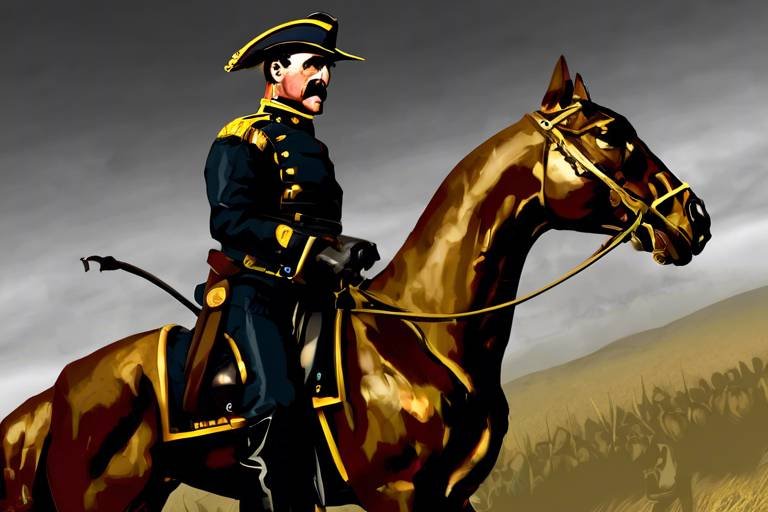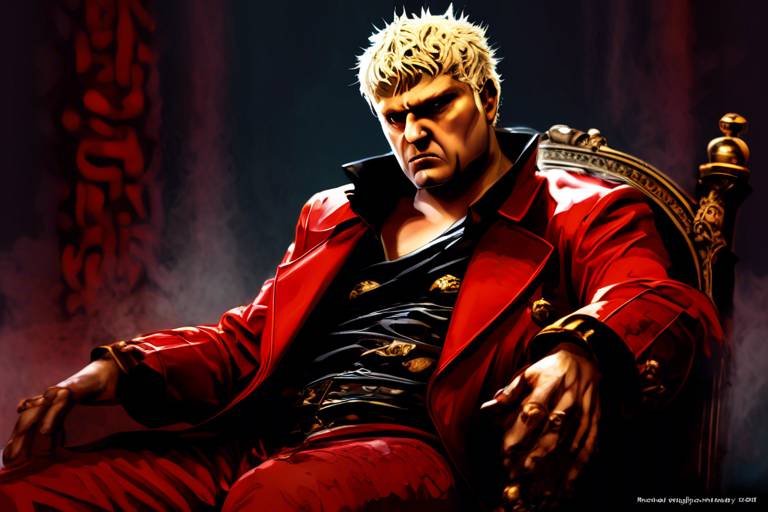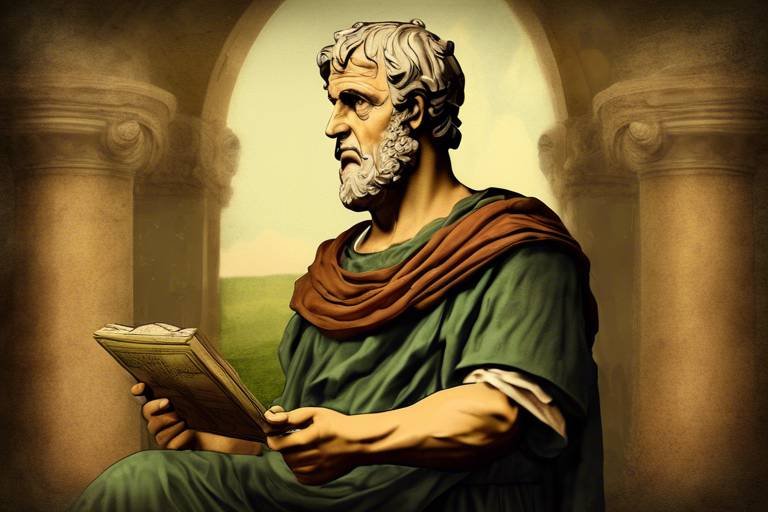Jean-Jacques Rousseau: The Philosopher of Enlightenment
Jean-Jacques Rousseau, known as the Philosopher of Enlightenment, was a pivotal figure in the intellectual movement of the 18th century that emphasized reason, individualism, and progress. His ideas on politics, education, and society have left a lasting impact on Western thought, shaping the way we perceive democracy, freedom, and the social contract.
Rousseau's early life was marked by challenges and influences that would later shape his philosophical views. Born in Geneva in 1712, he was largely self-educated and drawn to the works of thinkers like John Locke and Montesquieu. These early influences laid the foundation for his later writings on the nature of man and the organization of society.
One of Rousseau's most significant contributions was his political philosophy, particularly outlined in his seminal work, The Social Contract. In this treatise, he delves into the concept of democracy, the rights of individuals, and the legitimate authority of the state. Rousseau's ideas challenged the prevailing notions of governance and power, advocating for a more equitable and participatory form of government.
Rousseau's philosophy revolves around the idea of the natural state of man, positing that humans are inherently good but are corrupted by societal structures and institutions. He believed that true freedom could only be achieved by returning to a more primitive and authentic way of life, free from the constraints of civilization.
Education held a central place in Rousseau's philosophy, viewing it as a tool for emancipation and moral development. His work, Emile, or On Education, revolutionized the way we think about childhood learning, emphasizing hands-on experience, individualized instruction, and the nurturing of moral character.
Through his focus on emotion, nature, and the rejection of societal norms, Rousseau had a profound influence on the Romantic movement. His ideas resonated with artists and writers of the time, inspiring a renewed appreciation for the beauty of the natural world and the depths of human emotion.
Rousseau's legacy continues to provoke debate and discussion in the realms of political theory and literature. While his ideas on the social contract and civilization have endured, they have also faced criticism for being utopian or impractical. Nevertheless, Rousseau's contributions to the Enlightenment era remain significant and thought-provoking.
In today's world, Rousseau's ideas on democracy, individualism, and the social contract theory continue to be relevant. His emphasis on the importance of individual autonomy and the need for a just and fair society resonates with contemporary debates on governance, human rights, and social justice.
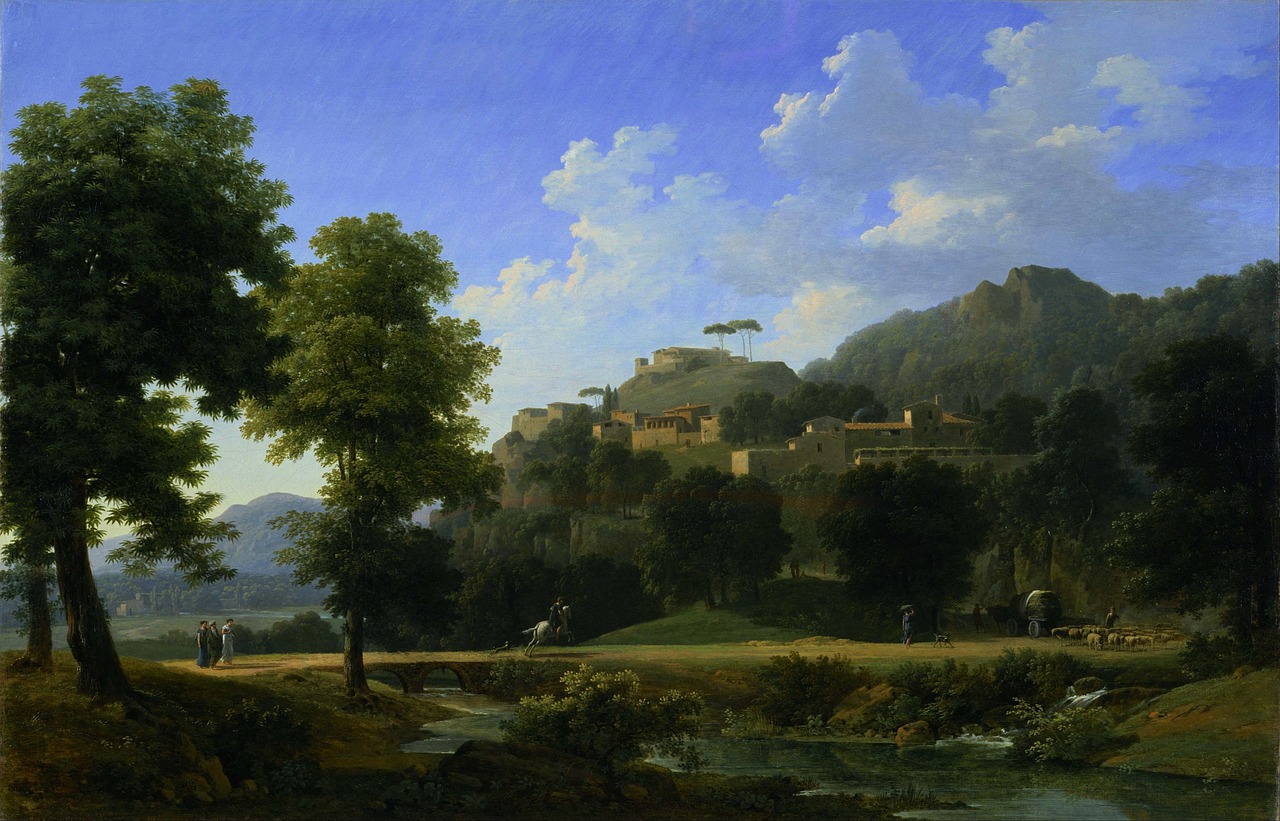
Early Life and Influences
Exploring the life, ideas, and impact of Jean-Jacques Rousseau, a prominent figure in the Enlightenment movement who influenced political thought, education, and social contract theory.
Understanding Rousseau's upbringing, education, and the key philosophical thinkers that shaped his ideas during the 18th century.
Rousseau was born in Geneva in 1712 and faced a tumultuous childhood marked by the loss of his mother at a young age. His father, a watchmaker, instilled in him a love for reading and music. Rousseau's early exposure to the works of philosophers like John Locke and Montesquieu laid the foundation for his own philosophical development. These influences, combined with his experiences as a tutor and musician, shaped his unique perspective on society and human nature.
Examining Rousseau's views on democracy, individual freedom, and the role of the state in his influential works like The Social Contract.
Discussing Rousseau's concept of the natural goodness of humanity and the corrupting influence of society on individuals.
Exploring Rousseau's thoughts on education as a means to foster individual autonomy and cultivate moral character in citizens.
Analyzing Rousseau's influence on the Romantic movement through his emphasis on emotion, nature, and the rejection of societal norms.
Examining Rousseau's seminal work on education and its revolutionary ideas on child-rearing, learning through experience, and moral development.
Reflecting on Rousseau's enduring legacy in political philosophy and literature, as well as criticisms of his ideas on civilization and society.
Exploring how Rousseau's ideas continue to resonate in modern discussions on democracy, individualism, and the social contract theory.

Political Philosophy
Exploring the life, ideas, and impact of Jean-Jacques Rousseau, a prominent figure in the Enlightenment movement who influenced political thought, education, and social contract theory.
When delving into Jean-Jacques Rousseau's political philosophy, one encounters a rich tapestry of ideas that challenge conventional notions of governance and individual rights. Rousseau's views on democracy, individual freedom, and the role of the state are profoundly articulated in his seminal work, The Social Contract.
Rousseau's concept of the natural state of man as inherently good and free, contrasts sharply with the corrupting influence of society on individuals. He posited that true freedom can only be achieved through a collective agreement among citizens, where the general will of the people guides political decisions for the common good.
Furthermore, Rousseau's thoughts on education as a tool for emancipation and moral development are intertwined with his political philosophy. He believed that education should focus on nurturing individual autonomy and moral character, rather than conforming to societal norms imposed by the state.
In Rousseau's vision, the state exists to serve the interests of its citizens, ensuring their freedom and well-being. He advocated for a form of direct democracy where citizens actively participate in decision-making processes, fostering a sense of civic duty and responsibility.
Rousseau's political philosophy continues to resonate in modern discussions on democracy, individualism, and the social contract theory. His ideas challenge us to rethink the nature of government, the rights of individuals, and the responsibilities of the state towards its citizens.
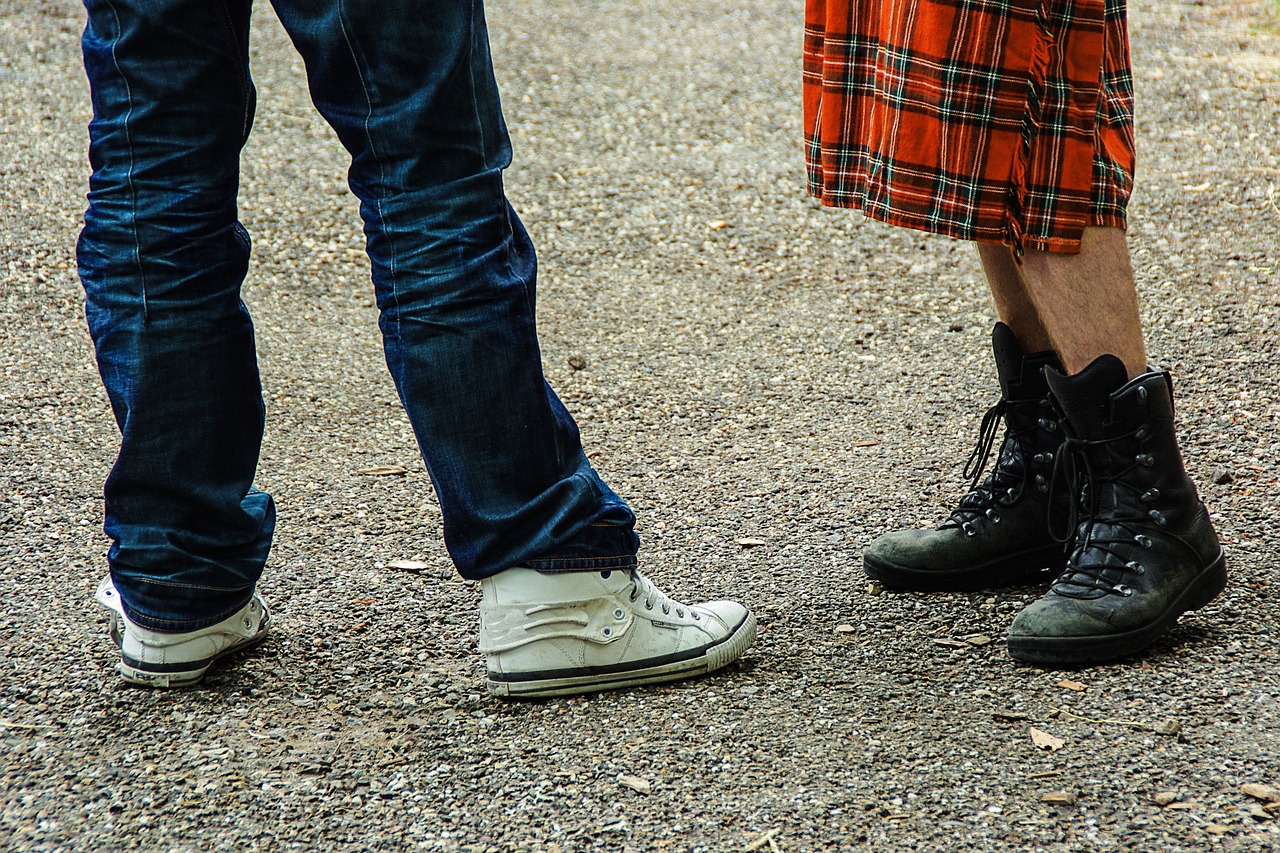
The Social Contract.
The Social Contract is a cornerstone of Jean-Jacques Rousseau's political philosophy, outlining his views on the relationship between individuals and the state. In this seminal work, Rousseau delves into the concept of the social contract, where individuals willingly come together to form a collective body politic. This agreement establishes the basis for a just society, where the general will of the people guides political decision-making and governance.
Rousseau argues that the social contract is essential for maintaining individual freedom and equality within a community. By surrendering some individual liberties to the collective will, individuals ensure the common good and protection of all members of society. This mutual agreement forms the foundation of legitimate political authority, emphasizing the importance of civic participation and the common good over individual interests.
Furthermore, Rousseau highlights the need for a government that reflects the general will of the people, rather than serving the interests of a select few. He critiques existing political systems that perpetuate inequality and oppression, advocating for a more democratic and participatory form of governance based on the principles of the social contract.

Exploring the life, ideas, and impact of Jean-Jacques Rousseau, a prominent figure in the Enlightenment movement who influenced political thought, education, and social contract theory.
Understanding Rousseau's upbringing, education, and the key philosophical thinkers that shaped his ideas during the 18th century.
Examining Rousseau's views on democracy, individual freedom, and the role of the state in his influential works like The Social Contract.
Discussing Rousseau's concept of the natural goodness of humanity and the corrupting influence of society on individuals.
Exploring Rousseau's thoughts on education as a means to foster individual autonomy and cultivate moral character in citizens.
Analyzing Rousseau's influence on the Romantic movement through his emphasis on emotion, nature, and the rejection of societal norms.
Examining Rousseau's seminal work on education and its revolutionary ideas on child-rearing, learning through experience, and moral development.
Reflecting on Rousseau's enduring legacy in political philosophy and literature, as well as criticisms of his ideas on civilization and society.
Exploring how Rousseau's ideas continue to resonate in modern discussions on democracy, individualism, and the social contract theory.
In the Frequently Asked Questions section, we address common queries about Jean-Jacques Rousseau and his philosophy:
Q: What were Rousseau's views on the natural state of man?
A: Rousseau believed that humans are inherently good in their natural state but are corrupted by society and its institutions.
Q: How did Rousseau's ideas on education differ from his contemporaries?
A: Rousseau emphasized learning through experience and believed in the importance of nurturing individual autonomy and moral character.
Q: What was the significance of Rousseau's work "The Social Contract"?
A: In "The Social Contract," Rousseau proposed a form of direct democracy where individuals surrender some rights to the community for the common good.
Q: How did Rousseau influence the Romantic movement?
A: Rousseau's focus on emotion, nature, and the rejection of societal norms inspired Romantic thinkers to prioritize individual expression and authenticity.

Natural State of Man
Exploring the life, ideas, and impact of Jean-Jacques Rousseau, a prominent figure in the Enlightenment movement who influenced political thought, education, and social contract theory.
Understanding Rousseau's upbringing, education, and the key philosophical thinkers that shaped his ideas during the 18th century.
Examining Rousseau's views on democracy, individual freedom, and the role of the state in his influential works like The Social Contract.
Rousseau's concept of the natural state of man is centered around the belief in the inherent goodness of humanity. He posited that in their natural state, individuals are virtuous, compassionate, and free. However, Rousseau also argued that society and its institutions have a corrupting influence on individuals, leading to inequality, greed, and moral decay. This conflict between the natural goodness of man and the negative impact of society forms a central theme in Rousseau's philosophical works.
Exploring Rousseau's thoughts on education as a means to foster individual autonomy and cultivate moral character in citizens.
Analyzing Rousseau's influence on the Romantic movement through his emphasis on emotion, nature, and the rejection of societal norms.
Examining Rousseau's seminal work on education and its revolutionary ideas on child-rearing, learning through experience, and moral development.
Reflecting on Rousseau's enduring legacy in political philosophy and literature, as well as criticisms of his ideas on civilization and society.
Exploring how Rousseau's ideas continue to resonate in modern discussions on democracy, individualism, and the social contract theory.
Stay tuned for answers to common questions about Jean-Jacques Rousseau and his philosophical contributions.

Education and Emancipation
Education and emancipation were central themes in Jean-Jacques Rousseau's philosophy, reflecting his belief in the transformative power of education in liberating individuals from societal constraints. Rousseau advocated for a holistic approach to education that focused on nurturing the natural inclinations and talents of each individual, rather than imposing rigid structures and norms.
In his seminal work, "Emile, or On Education," Rousseau outlined his revolutionary ideas on child-rearing and learning, emphasizing the importance of experiential learning and moral development. He argued that education should aim to cultivate autonomy and moral character in individuals, enabling them to navigate the complexities of society while remaining true to themselves.
Rousseau believed that traditional education systems stifled individuality and creativity, leading to the suppression of innate goodness and potential. By promoting a more hands-on, experiential approach to learning, he sought to empower individuals to think critically, question authority, and forge their own path towards self-realization.
Through his emphasis on the importance of education in fostering emancipation from societal norms and expectations, Rousseau laid the groundwork for modern educational theories that prioritize student-centered learning, personal growth, and ethical development. His ideas continue to inspire educators and scholars to rethink traditional educational practices and embrace a more humanistic and holistic approach to learning.

Impact on Romanticism
When delving into the impact of Jean-Jacques Rousseau on Romanticism, one cannot overlook the profound influence he had on this artistic and intellectual movement. Rousseau's emphasis on emotion, nature, and the rejection of societal norms resonated deeply with the Romantic ideals of individualism and the celebration of personal experience over reason alone.
Rousseau's belief in the innate goodness of humanity and the corrupting influence of society struck a chord with Romantic thinkers who sought to reconnect with a more authentic and primal state of being. His ideas challenged the prevailing Enlightenment notion of rationality as the sole path to truth, paving the way for a more emotional and intuitive approach to understanding the world.
Through works like "Emile, or On Education," Rousseau advocated for a natural and experiential form of education that aligned with the Romantic belief in the inherent purity and wisdom of the individual. This revolutionary approach to education emphasized the importance of nurturing the whole person, including their emotions, instincts, and connection to nature.
Rousseau's influence on Romanticism extended beyond the realm of philosophy and education, permeating art, literature, and music of the time. Artists and writers drew inspiration from his ideas, incorporating themes of nature, emotion, and the sublime into their works to evoke a sense of awe and wonder in the viewer or reader.
In essence, Jean-Jacques Rousseau's impact on Romanticism can be seen as a catalyst for a cultural shift towards a more introspective, emotional, and nature-centric worldview that continues to resonate in the artistic and philosophical expressions of today.

Emile, or On Education
Emile, or On Education, is a groundbreaking work by Jean-Jacques Rousseau that revolutionized the way society viewed the upbringing and education of children. In this influential treatise, Rousseau emphasizes the importance of allowing children to develop naturally, free from the constraints of traditional education systems. He advocates for a hands-on approach to learning, where children are encouraged to explore the world around them and learn through direct experience.
Rousseau's central idea in Emile is the concept of "negative education," which involves shielding children from the corrupting influences of society and allowing them to discover knowledge on their own terms. He argues that education should focus on nurturing a child's innate goodness and moral conscience, rather than imposing rigid rules and doctrines upon them. By fostering a sense of independence and self-reliance in children, Rousseau believed that they would grow up to be virtuous and authentic individuals.
In Emile, Rousseau also delves into the role of the educator, emphasizing the need for patience, empathy, and understanding in guiding a child's development. He rejects the notion of authoritarian teaching methods and instead advocates for a more collaborative and nurturing approach to education. Rousseau's ideas in Emile laid the foundation for modern educational philosophies that prioritize the holistic growth and well-being of students.

Legacy and Criticisms
Jean-Jacques Rousseau left a profound legacy in the realms of political philosophy and literature, shaping the course of intellectual discourse for generations to come. His ideas on the social contract, individual freedom, and the nature of governance continue to influence contemporary debates on democracy and society. Rousseau's emphasis on the sovereignty of the people and the importance of civic engagement has resonated with movements advocating for social justice and political reform.
However, Rousseau's theories have not been without criticisms. Some scholars argue that his romanticized view of the natural state of man is overly idealistic and fails to account for the complexities of human nature and societal structures. Critics also point to his rejection of civilization and the arts as regressive, overlooking the advancements and cultural achievements that have emerged from organized societies.
Despite the controversies surrounding his ideas, Rousseau's contributions to philosophy and literature cannot be understated. His works have inspired countless thinkers, artists, and revolutionaries, sparking intellectual movements and challenging established norms. Rousseau's legacy serves as a reminder of the enduring power of ideas to shape the course of history and provoke critical reflection on the nature of humanity and society.

Contemporary Relevance
Even in the modern era, Jean-Jacques Rousseau's ideas continue to spark debates and shape discussions on fundamental aspects of society and governance. His emphasis on the social contract theory remains a cornerstone in political philosophy, challenging us to rethink the relationship between the individual and the state. Rousseau's advocacy for democracy and individual freedom resonates strongly in today's world, where issues of civil liberties and governmental power are constantly under scrutiny.
Moreover, Rousseau's belief in the natural goodness of humanity and the corrupting influence of society prompts us to reflect on the complexities of human nature and the impact of societal structures on our moral compass. His ideas on education as a tool for emancipation and moral development continue to inspire educational reforms and initiatives aimed at nurturing independent and ethical individuals.
Furthermore, Rousseau's influence on the Romantic movement is evident in contemporary art, literature, and philosophy, with his celebration of emotion and nature resonating with those who seek to break free from societal constraints and embrace authenticity and individual expression.
In a world marked by rapid technological advancements and evolving social dynamics, Rousseau's emphasis on the importance of human connection, self-discovery, and the pursuit of a meaningful life serves as a poignant reminder of the enduring relevance of his ideas in navigating the complexities of the modern age.
Frequently Asked Questions
- What were Jean-Jacques Rousseau's key philosophical influences?
Rousseau's ideas were shaped by thinkers such as John Locke, Montesquieu, and Voltaire during the Enlightenment period. These philosophers influenced his views on democracy, individual freedom, and the social contract.
- How did Rousseau view the natural state of man?
Rousseau believed in the innate goodness of humanity in its natural state. He argued that society's structures and institutions corrupt individuals, leading to inequality and moral degradation.
- What was Rousseau's perspective on education?
Rousseau emphasized the importance of education in fostering individual autonomy and moral character. He advocated for experiential learning and believed in tailoring education to the needs and interests of the individual.
- How did Rousseau influence the Romantic movement?
Rousseau's emphasis on emotion, nature, and the rejection of societal norms had a profound impact on Romanticism. His ideas inspired artists, writers, and philosophers of the Romantic era.
- What is Rousseau's contemporary relevance?
Rousseau's ideas on democracy, individualism, and the social contract continue to be relevant in modern discussions. His critiques of societal structures and emphasis on individual freedom resonate in contemporary political and philosophical debates.


